Meet the researchers who are breaking new ground as Western Research Chairs
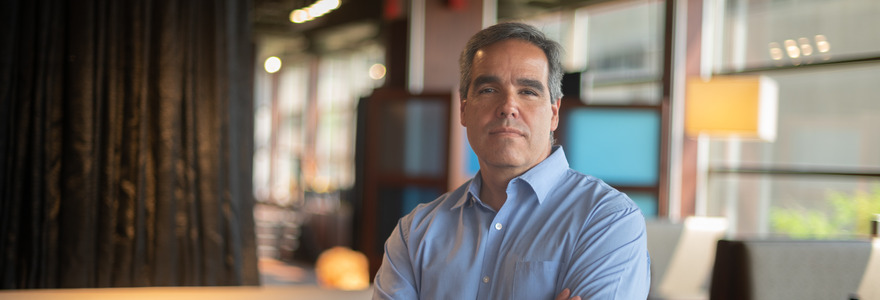
By Keri Ferguson, Western News
With files from Schulich Medicine & Dentistry Communications
When Miguel Quiñones-Mateu, PhD, landed in London, Ont. from Dunedin, Otago, New Zealand, it marked a significant step on a journey beginning years before.
Two decades ago, Quiñones-Mateu and his friends and colleagues, Eric Arts, PhD, and Richard Gibson, scratched out ideas for a viral vaccine seed bank on a napkin.
Now they are here at Schulich School of Medicine & Dentistry - Arts, a professor and Canada Research Chair in HIV Pathogenesis and Viral Control, is also the executive director of Western’s level 2 and 3 biocontainment laboratory, Imaging Pathogens for Knowledge Translation (ImPaKT). Gibson is ImPaKT’s director of operations.
Working with his team alongside Arts and Gibson, Quiñones-Mateu is establishing a viral vaccine seed bank at Western that will develop and house ready-to-use vaccines against future viruses.
He’s also leading Western’s participation as one of 80 partners of the Canadian Hub for Health Intelligence and Innovation in Infectious Diseases (H13). The new coalition of universities, hospitals and industry partners was created to support the development of life-saving vaccines and therapeutics, as well as processes that target existing and emerging infectious diseases.
Quiñones-Mateu – a Western Research Chair (WRC) in Viral Pathogenesis – is part of a group of Schulich Medicine & Dentistry researchers supported by the Western Research Chairs program.
Now celebrating one year in the role as a WRC, we took the opportunity to learn more about Quiñones-Mateu, and meet our strategic chairs Stefan Everling, Michael Hallett, Dr. Kun Ping Lu and Nicole Redvers.
What does it mean to be recognized through the Western Research Chairs (WRC) program?
Being named the Western Research Chair in Viral Pathogenesis is a highlight of my professional career. An important award not only recognizing my achievements during the last 25 years, but one that opens the door to many more exciting years of scientific discoveries, this time in Ontario, Canada.
The WRC was also instrumental in cementing my decision to join Western. It allowed me to hit the ground running, providing bridge funding to allow me to continue several of my research projects here at Western without any major interruptions.
Having a world-leading virologist is a big win for Western, and being here sounds like a big win for you.
I’m extremely fortunate to have found a place where I’m not only enjoying what I do (scientific research), surrounded by an extraordinary group of people, many of whom I can really call friends, but in a high-class academic institution with state-of-the-art facilities that allow us to think big and develop top-notch and competitive research programs.
What do you most look forward to in the year ahead?
Like any major transition, moving across the world from New Zealand to Canada has been a challenge during this first year. Setting up a new laboratory, continuing projects from the previous lab while establishing and starting new ideas and studies always takes time. That said, everyone at Schulich and Western was amazing, extremely helpful and accommodating, which guaranteed a smooth move.
The main reason to move to London was to reunite with Eric and Rick. We had been dreaming, for years, about the possibility of working together – in the same institution – again. Eric’s effort to bring me here, with the support of many leaders at Western led by (Schulich Medicine & Dentistry Dean) Dr. John Yoo, made it almost impossible to consider any other option.
Being in the same building has only expedited the flow of ideas and possibilities. Video conferences and phone calls are no match for a two-minute walk to each of our offices to pitch crazy ideas and discuss science.
Creating the Viral Pandemic Preparedness Program (VP3) is an idea we had been mulling for several years, and we could finally put it together this year, with the collaboration of a number of colleagues at Western and across Canada. I’m particularly excited about VP3, to establish the tools and new processes that will allow us to study future zoonotic events.
I’m also quite eager to see the beginning of the construction of the new Pathogen Research Centre (PaRC), which will host innovative facilities (some first-in-class in Canada, perhaps the world) that will allow us to study pathogens in a safe environment. I’m really looking forward to all the important scientific discoveries we will accomplish using PaRC and the rest of the state-of-the-art infrastructure at Western.
Learn more about how Arts, Gibson and Quiñones-Mateu are building a world-leading centre for pathogen research at Western.
***
Current Western Research Chairs
Strategic Focus Chairs
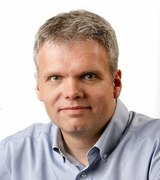
Stefan Everling, PhD
Professor, Department of Physiology and Pharmacology, Schulich School of Medicine & Dentistry; Department of Psychology, Faculty of Social Science
Stefan Everling leads a research team focused on unraveling the brain mechanisms underlying cognitive and social functions, including attention, impulse control, and the processing of faces and vocalizations. His work predominantly centers on the prefrontal cortex and anterior cingulate cortex — key cortical regions at the brain’s forefront crucial for orchestrating complex thoughts and actions.
Operating as a core scientist at the Centre for Functional and Metabolic Mapping within the Robarts Research Institute, Everling and his team leverage cutting-edge technologies such as ultra-high field functional magnetic resonance imaging (fMRI), high-density electrophysiology, and two-photon calcium imaging. These advanced methods enable a deeper exploration of the neural areas and processes fundamental to cognitive control and social cognition.
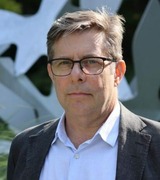
Michael Hallett, PhD
Professor, Department of Biochemistry, Schulich School of Medicine & Dentistry
As the Western Research Chair in Bioinformatics, Michael Hallett focuses on understanding the molecular events that occur early in the evolution of breast cancer, specifically those that occur when cancer cells break through the membrane surrounding breast ducts and invade into the surrounding tissue.
Breast disease detected before this event is easier and more successfully treated than breast disease detected after it has already become invasive.
One of the key challenges in the treatment of such early breast cancers is to not over-treat patients with therapies such as radiation that may not provide any long-term benefit. Hallett’s research uses a mixture of genomics, computational biology/AI, and statistics to build new tools that may change how we treat individuals with breast cancer.
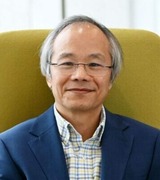
Dr. Kun Ping Lu
Professor, Department of Biochemistry, Schulich School of Medicine & Dentistry
Dr. Kun Ping Lu is the Western Research Chair in Biotherapeutics. Alongside his long-term collaborator Dr. Xiao Zhen Zhou, Lu discovered a stress response enzyme called Pin1, whose dysregulation has the opposite impact on cancer and Alzheimer’s disease, major age-related diseases. Lu and Zhou have also further identified Pin1 inhibitors to render aggressive cancer, such as pancreatic cancer, eradicable and created a new generation of innovative conformation-specific antibodies for early diagnosis and treatment of Alzheimer’s disease, traumatic brain injury, stroke, and sepsis. Their current interests are to further develop their novel Pin1-targeted therapeutics and diagnostics using cell cultures, animal models, and human tissues and translate them to the clinic for the early disease detection and treatment. They most recently made groundbreaking progress towards identifying the root cause and potential therapy for preeclampsia.
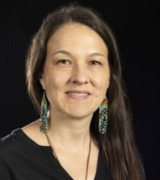
Nicole Redvers, ND, MPH
Professor, Department of Epidemiology and Biostatistics; Director, Indigenous Planetary Health, Schulich School of Medicine & Dentistry
Professor Nicole Redvers is a member of the Deninu K’ue First Nation and has worked with various Indigenous patients and communities around the globe, helping to bridge the gap between Indigenous traditional and modern medical and research systems. She is co-founder and past board chair of the Arctic Indigenous Wellness Foundation in Yellowknife, and worked as a naturopathic doctor and global medical volunteer for more than a decade before entering academia. Throughout her career, Redvers has been actively involved at regional, national and international levels, promoting the inclusion of Indigenous perspectives in both human and planetary health research and practice. She was recently appointed to the World Health Organization’s Technical Advisory Group on Embedding Ethics in Health and Climate Change Policy. As one of 13 members of the group, Redvers will help deliver a range of tools, materials and evidence-based insights to address this worldwide challenge.
Read about all of those recognized as Western Research Chairs








